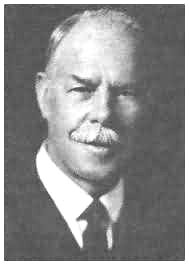© 22 Colin Melbourne
And he said unto them, I beheld Satan as lightning fall from heaven.
Behold, I give unto you power to tread on serpents and scorpions, and over all the power of the enemy: and nothing shall by any means hurt you.
Luke 10:18-19 KJV
Q: My NIV bible translates Lk. 10:19 as; I have given you authority … to overcome all the power of the enemy … Since they are two different words in the Greek, isn’t this an example of where the NIV is more accurate than the KJV, which translates them both as power?
A: Thank you for an excellent question, and I commend you for studying your bible more deeply than most.
Your point is; that the Greek word exousia is translated as “power” in Luke 10:19 of the KJV, rather than “authority”, and in the second clause, dunamis is also translated as “power”.
If you’re familiar with this ministry, you’ll know that Father has shown us The KJV is God’s Inerrant Written Word in English. Therefore, we answer this question from a different perspective, than would a user of a modern bible, such as the NIV.
ie. Why did the KJV Translation Committee use power in Luke 10:19 in both places, for two different Greek words?
The short answer is; because if they had used “authority”, as you suggest, it would drastically weaken what the Holy Ghost was saying here. Read on for in-depth explanation.
Christendom’s Top Bible Scholars and Linguists
The KJV Committee were the finest linguists and bible scholars in England, so they were intimately aware of the subtle nuances between the Greek dunamis and exousia, yet were led by the Holy Ghost to use “power” in both places in this scripture.
 << Read The Attack Chick tract: See the behind-the-scenes struggle to destroy the King James Bible, and how God preserved it.
<< Read The Attack Chick tract: See the behind-the-scenes struggle to destroy the King James Bible, and how God preserved it.
In our view, all modern ‘bibles” are corrupt, so this question is an intriguing topic to investigate.
The approach we take is; why, for what reason, did the KJV Committee choose to translate two different Greek words, “exousia” and “dunamis” using the same word, “power”, in the same verse?
First, a word about usage of authority and power in plain English.
Power implies authority, but authority is not necessarily power. And vice versa; Authority implies power; but power is not necessarily authority.
A coconut falling from a palm has power to crack open somebody’s head, but it doesn’t have authority to do so.
Kinetic power, energy, or force, is not the same as having the right to determine upon whom it will drop. That right and authority belongs to the LORD.
Similarly, a traffic policeman has authority to stop vehicles with a raised hand, but he doesn’t have physical power to stop them.
A Bible Example
If David’s (faithless) elder brothers had slung a pebble at Goliath’s forehead, they would have missed, or it would have bounced off. Because they had exousia (the legal right), but no dunamis (no heart faith, so no divine anointing).

The Terminator They thought Goliath was the ultimate weapon. But God delivered him into the hands of a shepherd. At Armageddon, another Shepherd will bring victory. Make Him your Saviour
Click to read: The Terminator Chick tract
In contrast, little David believed in his exousia wholeheartedly, and so the LORD directed and empowered his pebble, and He supplied the dunamis for it to penetrate the giant’s skull, and defeat him. (Incidentally, the energy to do that didn’t come from David’s sling or arm, it came direct from The LORD.)
The point is: Knowledge of the Truth, plus heart-faith in action releases God’s power on Earth as it is in Heaven. Halleluia!
Likewise, a King may direct his executioner to swing the axe and lop off a prisoner’s head, but if the executioner is incapacitated, he lacks the dunamis (force) to fulfil his exousia (legal right). He has the authority, but not the power.
And vice versa: When the executioner is fit and strong, he has the dunamis (ability and strength) to behead his captive, but cannot without the King’s warrant in his hand, the legal right, exousia. He has the power, but not the authority.
The KJV Committee were well aware of this, and were led to deliberately choose “power” for exousia, because if they’d used the English “authority” here, it would leave room to imply the believer may not be fully equipped to overcome all the power of the Devil.
That would disgrace the finished work of Christ for us.
Because the words we are looking at, are the warrant of the King of kings, every believer who believes the words has both authority and divine power to fulfil them.
But that much is only theory until the believer acts on this God-given knowledge.
The moment they do, like young David, they find the power of the LORD is upon them to overcome all the works of the Enemy.
Exousia in The New Testament
Throughout the New Testament the word exousia is used sometimes to mean just authority (the legal right), and other times (ie. Lk. 10:19) to mean authority and divine power (the right and the divine energy to enforce the right).
Let’s read the scripture in context;
And he said unto them, I beheld Satan as lightning fall from heaven.
Behold, I give unto you power to tread on serpents and scorpions, and over all the power of the enemy: and nothing shall by any means hurt you.
God in The Flesh is talking about Satan being thrust from Heaven to Earth because of his treason and rebellion, and Christ says to disciples I give unto you power, implying both the authority and the divine force (anointing) to exercise it over Satan.
Try to get that point; God is telling followers of Christ today that they have His authority, and His anointing will enforce it.
Are you following Christ?
In the second clause, the power mentioned is satanic, not divine; so the complete verse is telling disciples, we have, in and through Him, unlimited divine authority and power over all the limited power of the enemy.
Satan’s authority on Earth has been broken by the Sacrifice and Precious Blood of Christ, and He has given disciples the mission to go into all the world to; demonstrate, apply, impose, and use, His delegated resurrection power. Halleluia!
Spirit-filled believers walking in the Light, have that power, it works by heart-faith in His words.
We have that duty, it is our mission on Earth.
So the use of “power” for exousia is highly significant for believers.
Father is telling us, that not only do we have the divine legal right to destroy the Devil’s works, but as we put our faith in His Word into action, He guarantees He will endorse us as we have believed.
That fits with our experience too, doesn’t it?
Talkers, ditherers, and doubters get nowhere with Almighty God.
Only believers, who put His words into practise, get Bible results.
So now we can see why the KJV Committee were led to use “power” in both places; because Christ has given believers, not only authority, but also power to use that authority. ie. He’s always ready to endorse the believer using their delegated authority with His power.
Go For It: I’ll Back You

This is key to understanding effective ministry. Smith Wigglesworth grasped it in 1907, and thereafter transformed his world for half a century. One of his mottos was, Fear looks: Faith Leaps!
In this verse, exousia means both authority, and the spiritual power to enforce it.
To translate it merely as “authority” (as corrupted “bibles” do), would suggest the Lord “may, or may not, enforce” the authority He has given believers.
That would be flat-wrong.
Therefore, the KJV Committee correctly chose “power” for both words, because to use “authority” in either place would weaken what God is actually saying to us.
That this is so, is confirmed by several other NT scriptures, for example, Lk. 4:36, 9:1 KJV;
And they were all amazed, and spake among themselves, saying, What a word is this! for with authority (exousia ie. legal right) and power (dunamis ie. divine power) he commandeth the unclean spirits, and they come out.
Then he called his twelve disciples together, and gave them power (dunamis ie. divine power) and authority (exousia ie. legal right) over all devils, and to cure diseases.
Now let’s dare to believe, and Use The Power Christ has given us over Satan.
That’s Holy Bible Faith.
© 22 Colin Melbourne
Tract image © Chick Publns. Used by permission.
You may also wish to read;

